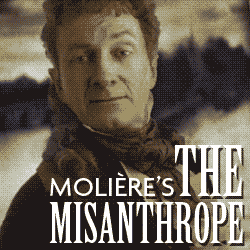Voters in high-tech area still await count from paper system By Charlie Brennan, Rocky Mountain
News It's the Boston Red Sox playing whiffle ball. It's
Bruce Springsteen on an out-of-tune ukulele.
In Boulder County, a highly educated community and high-tech hotbed,
they're still counting election ballots - ballots voters filled out by
hand.
Because Boulder's situation remains in limbo, Democrat Stan Matsunaka
has yet to concede defeat to Republican Marilyn Musgrave in the 4th
Congressional District, and the question of whether a $15.5 million budget
proposal for the St. Vrain Valley School District passed goes unanswered.
What gives?
"I don't know if this is irony, but it's frustrating," said Joe
Pezzillo, a Boulder citizen activist who was also the entrepreneur behind
the pioneering radio Internet station GoGaGa.com.
"We were promised that this system was going to meet the citizens'
requirements and needs, and clearly it has not," he said.
Pezzillo served as spokesman for the ad hoc group Citizens for
Verifiable Voting, which worked with Boulder County commissioners who
selected the paper-ballot system to guard against the perceived tampering
dangers of electronic voting systems - even if it meant results would be
slower in coming.
The voting process Boulder settled on, the Hart-InterCivic Ballot Now
Optical Scanning System, had two trial runs this summer, but final results
from Tuesday's election still are not expected until today.
"As a citizen and elector, I definitely feel like the accuracy of the
vote is far more important, and the citizens of Boulder County made that
very clear to the county commission and the elections office," said
Pezzillo.
"But there's a maxim in the computer industry. It may not be a problem
with the hardware. It may be a problem with the carbon-based units."
Gary Horvath, a marketing analyst in the business research division of
the Leeds School of Business at the University of Colorado, said Boulder's
educational reputation is deserved - 32.7 percent of the adults 25 or
older have a bachelor's degree or better. The state average is 24.4
percent.
But, he pointed out, "I vote in Broomfield County, and election night,
8:45, their results were done. Everything was counted," said Horvath. That
relatively new county, with fewer voters than Boulder, was using a
completely electronic system.
Boulder's slow crawl to the electoral finish line is "pretty
unbelievable," Horvath said.
"I think there's a real disconnect there," he added. "We have a number
of really bright people in the city government and the county government.
It doesn't make sense for that to be happening."
Steve Clem, a county resident who is manager of volume manufacturing at
the Ball Aerospace & Technologies Corp. in Boulder, said his wife is
an election judge - and he is no fan of the new system.
"We've taken a step backward with the paper process," he said. "There
was nothing wrong with the punch-card process they used to have."
Laughing about the rectangular spaces voters had to methodically fill
in for each ballot issue, Clem said, "At least they could have made the
boxes a little smaller."
Boulder businessman Sam Sussman, who last week was busy rallying fellow
business owners to allow employees to vote early on company time, was
surprised that a community known as a high-tech engine was creeping down
the tracks toward finalizing its election.
"I think I worked hard, and a lot of other people worked hard, on
get-the-vote-out, and it's a little bit disconcerting that the tallies
weren't in right away," said Sussman. "I would have liked to see Boulder
be first."
Boulder County spokesman Jim Burrus said county officials had been very
clear, on the front end, that the system would not produce immediate
results.
"We knew that it would take longer, but we didn't know it was going to
take this long," Burrus conceded. "It's a learning curve."
Burrus pointed out that in the summer trial run, and the August
primary, the system was called upon to process 81/2-inch-by-11-inch,
single-page ballots. The general election, however, was conducted with
two-page, 11-inch-by-17-inch ballots.
"I feel like the weatherman who says, 'I knew it was going to snow, but
I didn't know it was going to snow this bad,' " said Burrus.
He emphasized that the system was selected in response to voters who
were concerned about electronic systems that leave no confirming paper
trail.
"It's what the folks wanted," said Burrus. "You're probably not hearing
from those who aren't having a problem with the time it's taking, and
don't mind that it's a paper ballot, because they do feel more confident
knowing that a record remains, and will continue to exist, in case there's
some dispute with the outcome."
brennanc@xxxxxxxxxxxxxxxxxxxxx
or 303-892-2742 Copyright 2004, Rocky Mountain News. All Rights Reserved. |

